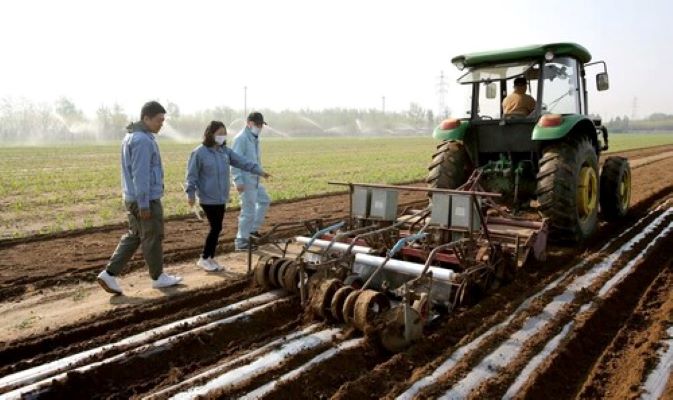This pilot demonstrates that sustainable agriculture can coexist with high yields

Sinopec’s Fully Biodegradable PBST Material Tackles Residual Mulch Film Challenge in Xinjiang’s Cotton Fields.
China Petroleum & Chemical Corporation (Sinopec) has announced a successful pilot of its polybutylene succinate-co-terephthalate (PBST) biodegradable mulch film in Xinjiang, which fully decomposes into harmless substances and yields cotton crops comparable to those grown using traditional plastic film.
The new PBST film addresses the long-standing problem of residual plastic pollution caused by conventional polyethylene (PE) mulch films in China's cotton fields.
“This pilot demonstrates that sustainable agriculture can coexist with high yields,” said a Sinopec spokesperson. “PBST not only maintains cotton productivity but also reduces costs and environmental impact.”
Sinopec has been rapidly scaling up PBST production. In March, the company launched the world’s first 60,000-ton-per-year PBST industrial facility at its Hainan Refining & Chemical site. By April, it had deployed the first large-scale PBST mulch film pilot, covering over ten thousand mu of cotton fields in Wusu and Kuitun cities, in partnership with local agricultural authorities and Liaoning Dongsheng Group.
Independent assessments in October confirmed the results: PBST-covered fields achieved yields comparable to PE-covered fields while the film degraded significantly faster, eliminating the need for manual retrieval and reducing soil pollution.
Subscribe to our newsletter & stay updated.